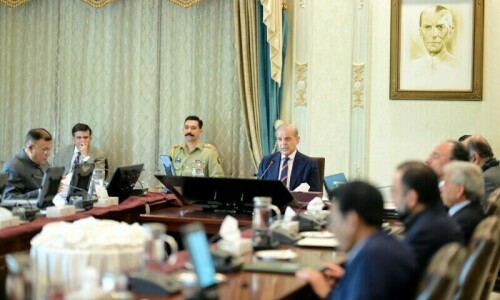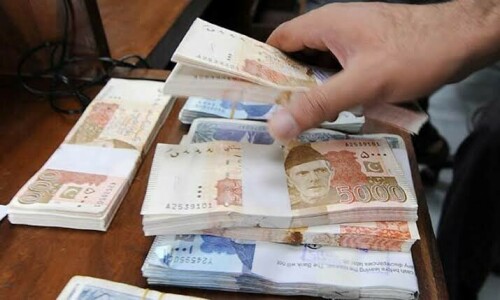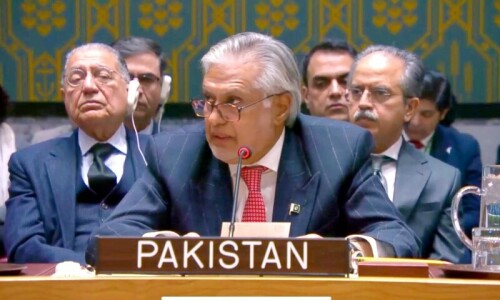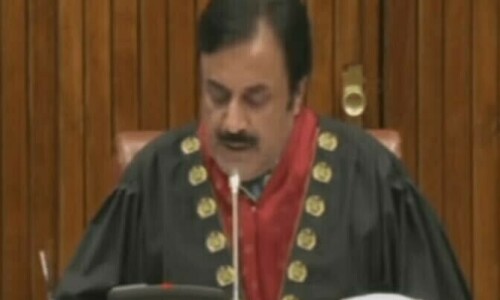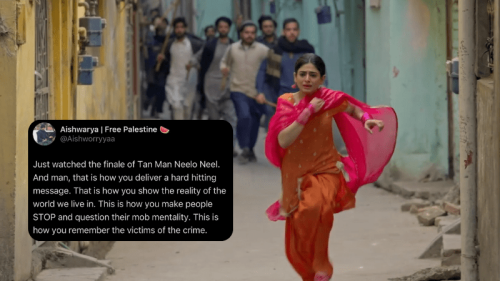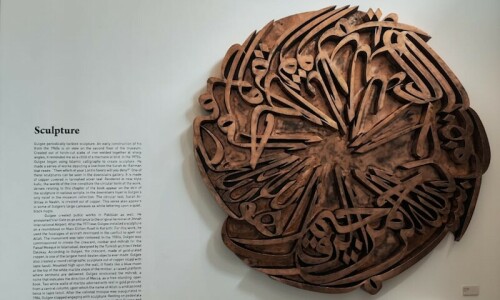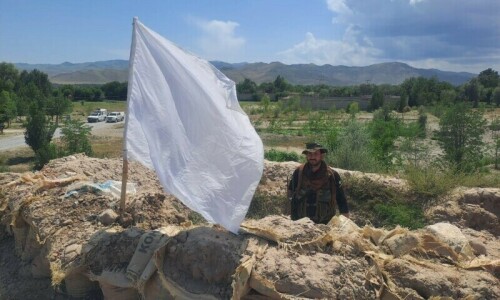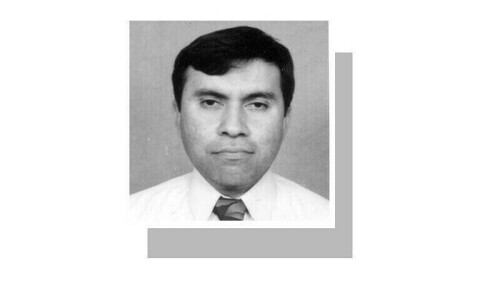PRETTY much all states deploy facts selectively to sustain their national ideologies, inconvenient truths glossed over to maintain the façade of unity. But there are few states whose contradictions are so glaring that they undermine the declared basis of nationhood. The refugee question embodies all that is wrong with both official history and contemporary ideology in Pakistan.
From birth, we learn that Pakistan is a citadel of Islam, created precisely so that Muslims can be safe in their own homeland. But in today’s Pakistan the proverbial refugee — the vast majority of whom are Muslim — is viewed with utter contempt.
Since the 1980s, when a stream of people fled the war in Afghanistan and settled in Pakistan, the political and intellectual mainstream has placed the blame for a large number of our social ills on Afghan refugees. We are told that upwards of two million Afghans have taken rights from bona fide Pakistani citizens, forging fake ID cards, triggering drug use, crime and urban violence.
Read: No choice but to leave
It is true that many Afghans have become naturalised Pakistanis, and that this has altered the demography of metropolitan areas like Karachi and Quetta. But to attribute all of our many pathologies to these refugees is to ignore the much bigger fish that have instigated and profited from organised crime and militancy in Pakistan before and after the Afghan ‘jihad’.
Fuelling hate does not make the problem go away.
Today, we again confront the possibility of Afghans being driven from their homes as their country is pillaged by the Taliban and other militants. It would certainly be better for everyone concerned if another stream of Afghan refugees did not enter Pakistan, but then that requires security establishments, including our own, to stop playing blood games in Afghanistan. Ordinary people on both sides of the border want peace, not more war, destruction and dislocation.
For those who still find it difficult to feel anything but vitriol for Afghan refugees, how is it you’ve forgotten the many Pakistan Studies lessons of our youth describing how newly formed Pakistan inherited millions of refugees at the time of partition? Some were destitute and ravaged by violence, and entire ministries were set up to rehabilitate them, and, in many cases, grant them property evacuated by those who left for India.
The politics of partition-era resettlement and the clout exercised by the Urdu-speaking refugees significantly shaped the Pakistani polity. The decline of the MQM in Karachi and the increasing perception that Urdu speakers are now less prominent in Pakistan’s contemporary power structure notwithstanding, the fact is that refugees were central to Pakistan’s official imagination for decades.
Karachi is of course at the centre of the decades-long controversy over Afghan refugees, just like it was at the heart of the Sindhi-Mohajir conflict earlier. Today, some Sindhi and Mohajir nationalists decry Afghan refugees as a blight on the country’s biggest city, and often conflate nebulous entities like the Taliban with Afghans tout court.
Let us be reminded that Karachi is home to many refugee populations. Hundreds of thousands of Rohingya and other Burmese populations call Karachi their home now. At least a million Bihari-Bangladeshis, many living in squalor, have spent 50 years living down the legacy of East Pakistan’s secession in 1971.
All of these refugee populations are despised by most Pakistanis. Instead, we should feel empathy towards them, and direct our anger towards our own and other ruling classes that choose not to deal with the fallouts of cynical wars waged in the name of ‘national interest’.
Over the past couple of days, Afghans in prominent cities like Herat have come out onto the streets chanting ‘Allah-o-Akbar’. Theirs is a symbolic resistance to the obscurantist version of religion that the Taliban once again seek to impose upon that country. It is worth bearing in mind that this resistance is also bringing together Pakhtuns and non-Pakhtuns in Afghanistan between whom divisions have been stoked deliberately over many decades.
I do not want to see more Afghans become refugees, or, for that matter, any other population, whether within Pakistan or outside. I sympathise with Baloch, Sindhi and other ethnic-linguistic peoples in Pakistan who are concerned about their own futures in the face of more demographic change. But fuelling hate in the name of state ideology or even due to perceptions of scarce material resources, does not make the problem go away.
If and when global and regional powers stop meddling in their affairs, Afghans, both Pakhtun and non-Pakhtun, will have to heal and devise an inclusive nation-building project. We in Pakistan would do well to focus on devising an inclusive nation-building project of our own beyond ‘one religion, one language’ rather than blaming Afghan and other Muslim refugees for the follies of our own establishment and its intellectual lackeys.
The writer teaches at Quaid-i-Azam University, Islamabad.
Published in Dawn, August 6th, 2021

















